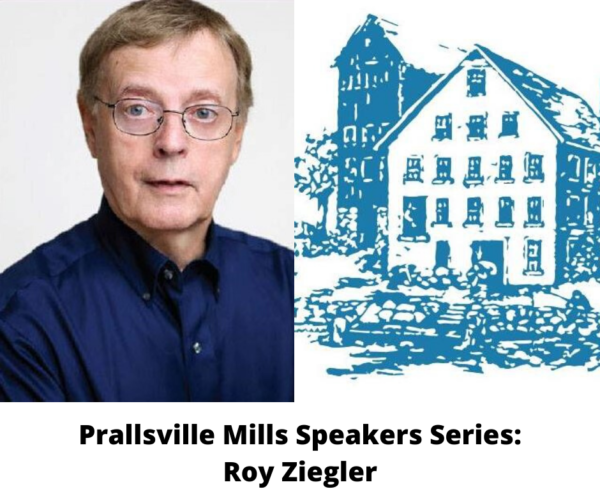
Historian & Author Roy Ziegler will be visiting Prallsville Mills as part of their Speakers Series. The Thursday, January 9 event will begin at 7 p.m. Its focus will be The Story of the Ritz Randolph Family: A Founding Family of New Jersey.
Pilgrim Edward Fitz Randolph Jr. arrived in Plymouth Colony in 1630, during the Great Migration from England in search of freedom and opportunity. He married Elizabeth Blossom, daughter of a prominent religious figure, Thomas Blossom. Their descendants include farmers, war heroes, noted physicians, community activists, builders, governors, congressmen, senators, and four presidents of the United States. Roy Ziegler will lead guests through nine generations of their family.
About Roy Ziegler
Roy Ziegler has written three books on early American History. His most recent book, Unfaltering Trust, tells the story of Pilgrim Edward Fitz Randolph and his descendants and their contribution to the development of America over the past four centuries. New Hope, Pennsylvania: River Town Passages traces the history of 50 historic buildings in New Hope, and The Parrys of Philadelphia and New Hope, the story of five generations of the Parry Family, won Editor’s Choice and Rising Star Awards from iUniverse publishers. He has also collaborated on a children’s book, Let’s Visit New Hope, with Gayle Goodman and Pat Achilles. He was an associate producer of the documentary video about the 200-year history of the New Hope-Lambertville Bridge.
Roy is past president of the New Hope Historical Society and has continued to serve on its board of directors since 2002. He is editor of the Historical Society’s quarterly newsletter, History in the Making. He chairs the annual New Hope History Day committee and he sponsors the Historical Society’s annual Benjamin Parry Day. Roy produces and conducts walking tours of historic New Hope. He has been a featured speaker for numerous organizations in Pennsylvania and New Jersey.
Prallsville Mills
The Prallsville Mills complex in Stockton, NJ, is considered a significant example of early American industrial architecture. It was added to the National Register of Historic Places in 1973. Today, the Mill proudly features cultural and historic events for the entire community.
We Are Supported By:







